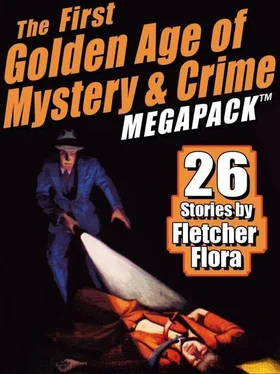“I was just surprised to see you here, that’s all.”
“Is it so surprising that I’d come to see my own father?”
“I didn’t see your car outside. Where’s your car?”
“I didn’t drive today. I walked.”
“All the way here?”
“All the way.”
“You shouldn’t have done that.” His voice thinned, took on an angry, querulous tone. “You know I don’t have a car. Now it will be late before you can get back.”
“That’s all right. I’m not going back.”
“You’ll have to call a taxi, that’s what you’ll have to do.”
“Listen to me. I said I’m not going back.”
He looked at her for a moment, now that he had listened and heard, as if he was unable to understand. He drank again from the beer can, wiping his lips afterward with the palm of his hand. “Where are you going?”
“I don’t know. Somewhere. If I can’t stay here, I’ll go somewhere.”
“You’ll go back, that’s where you’ll go. You’ll go right back where you belong.”
“Do you think so? I don’t.”
“What’s the matter with you? Are you out of your head?”
“Don’t start that. I’ve heard enough of that.”
He apparently received some kind of warning from her words, for his attitude changed suddenly. He smiled, nodding his head, but the smile was more an expression of slyness than of understanding or affection. “Well, something has upset you, that’s plain. Come. Sit down and talk it over with your father. You’ll feel better then. You’ll see. Will you have a beer?”
Knowing him for what he was, recognizing from long experience another of his repeated efforts to deceive her, she sat down across the table from him, nevertheless, simply because she was tired and it was easier to sit than to stand. “No, thank you,” she said. “I don’t want a beer.”
“Well, then, tell me what’s wrong. You’ve had a foolish quarrel with Clay. Is that it?”
“Clay doesn’t quarrel with me. Clay doesn’t quarrel with anyone. He’s far too cold and contained. He has other methods.”
“Clay’s rich. A successful man. They say at the yards that he’s worth millions. The richest man in town. You can’t expect a man like that to be like other men.”
“He hates me. I can see it in his eyes. When we are alone, I can hear it in his voice.”
“Oh, hell! That’s crazy. He married you, didn’t he? Just two years ago, he came and took you away and married you. He didn’t have to do it, either. Don’t try to tell me he did, because I know better. I was here. I remember how you were. No crazy talk about hate then. He could have had whatever he wanted from you, marriage or nor, and he probably did.”
“That’s right. I sold myself. And you — because he was rich, you thought you were onto something big. You didn’t care about anything else.”
“You were lucky — lucky to be born with a face and body to rile a man’s blood and make him lose his head. How many poor girls from this part of town get a chance to marry a rich and powerful man liked Clay Moran?”
“They’re the lucky ones. The girls who don’t get the chance.”
“What kind of curse has been placed upon me? It’s almost more than a man can bear, and that’s the truth. I’ve never had any luck with my women. All those years I had your mother on my hands, and now I’ve got you.”
“Don’t start on Mother! Don’t start!”
“She was my wife, and I’ll say what I please. She was crazy — so crazy I had to put her away.”
“She wasn’t crazy. She had a nervous breakdown. Small wonder, being married to you.”
“She died in an institution. The same place you’ll die if you keep on.”
“It would be better than dying before my time in the house of Clay Moran.”
“What’s that: What did you say? You really must be crazy!”
“He wants me to die. He plans to murder me.”
His mouth hung open, his mind groping in darkness behind his eyes for some sense and sanity in her words. Then, stunned by the enormity of what she had clearly said, he pushed back from the table in his chair and stood up deliberately. “I knew it. I’ve been fearful of it. You’re crazy like your mother. Do you know what you’re saying?”
“I’ll say it again. He wants me to die. He murdered his first wife, and he plans to murder me.”
“His first wife drowned. It was an accident. What kind of hellish trouble are you trying to breed for yourself and for me? Clay Moran is a powerful man in this town. A rich and powerful man. What do you think he’s going to do if he hears his wife has been going around making such insane accusations? I won’t hear anymore. I won’t listen to you.”
“Don’t. I knew you wouldn’t. I should never have come here.”
“Be reasonable. Try to be sane for a minute. Has he ever tried to murder you?”
“Not yet. You don’t know Clay. He’ll only need to try once.”
“Has he ever threatened you?”
“He looks at me. He says sly things with double meanings. It’s not his way to threaten directly. He’s incredibly cruel and clever.”
“It’s in your mind. Can’t you understand that? You imagine these things.”
“He plans to murder me, as he murdered his first wife, because he hates me, as he surely hated her. I think he must hate anyone who marries him. It’s a kind of madness in him.”
“Now look who’s crazy! You ought to be right back where you came from, and that’s where you’re going. It’s not right for you to bring this kind of trouble into my house.”
He jerked his narrow shoulders, as if shaking off an intolerable burden, and started for the door. She could hear him in the hall, dialing the telephone. After a few seconds, she could hear his voice, angry and urgent.
“Is Mr. Moran at home? Let me speak with him, please. It’s important.”
She didn’t hear anymore. She isolated herself in silence, hearing nothing, sitting still and mute. She had wasted her strength and will. Having fled this short way to no good end, she could flee no farther.
Sitting so, futile and spent, she thought of Roger. She had not thought of him for a long time, and now that she did, after all this while, she was filled with regret and fruitless pain.
She awoke with a start and was instantly attuned to the sounds of the day, perception hypersensitized by apprehension. She could hear the soft whirring sound of the electric current driving the delicate mechanism of the little ivory clock on her bedside table. She could hear the remote and measured drip of a lavatory tap in the bathroom between her room and the next. She heard the gimping footsteps of the upstairs maid, who had suffered as a child from poliomyelitis, pass by her door in the hall. She heard from a tree outside her window the clear, repeated call of a cardinal. She thought that she could hear, deep below her in the bowels of the house, the deadly, definitive closing of a door.
It was about eight o’clock. She could tell by the slant of the sun through a window in the east wall of the room. She could measure time by the distance the sunlight reached into the room. Not exactly, of course, not with the precision of the little ivory clock she could hear on her bedside table, for the distance was longer or shorter at any given time of the morning as the sun rose earlier or later in the course of the season, but she was, nevertheless, surprisingly accurate in spite of having to make minute adjustments from time to time to the inflexible schedule of the universe. It was, like her keen perception of almost indiscernible sounds, a part of her hypersensitive attunement to everything around her. Her senses had been refined and directed by persisting danger.
She turned her head and looked at the other bed, the twin of her own, across an intervening aisle. It was empty. Neatly made. Clay had not slept in it last night. It gave her an exorbitant sense of relief, the empty bed, although she had known perfectly well, before turning her head, that no one was in it. If Clay had been there, she would have been aware without looking. She would have been aware in the instant of waking even if he had lain as still as stone and made no sound whatever. She would have known through the cold, instinctive shrinkage of her flesh. She would have smelled him, the aura of him, the sickening, sweet, pervasive scent of death.
Читать дальше












